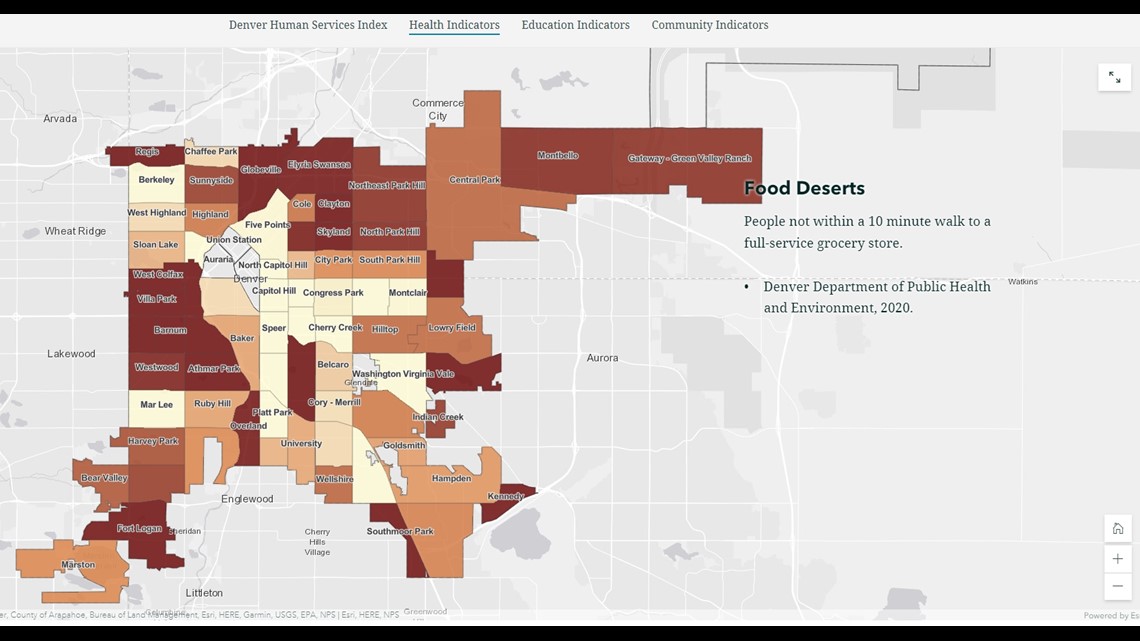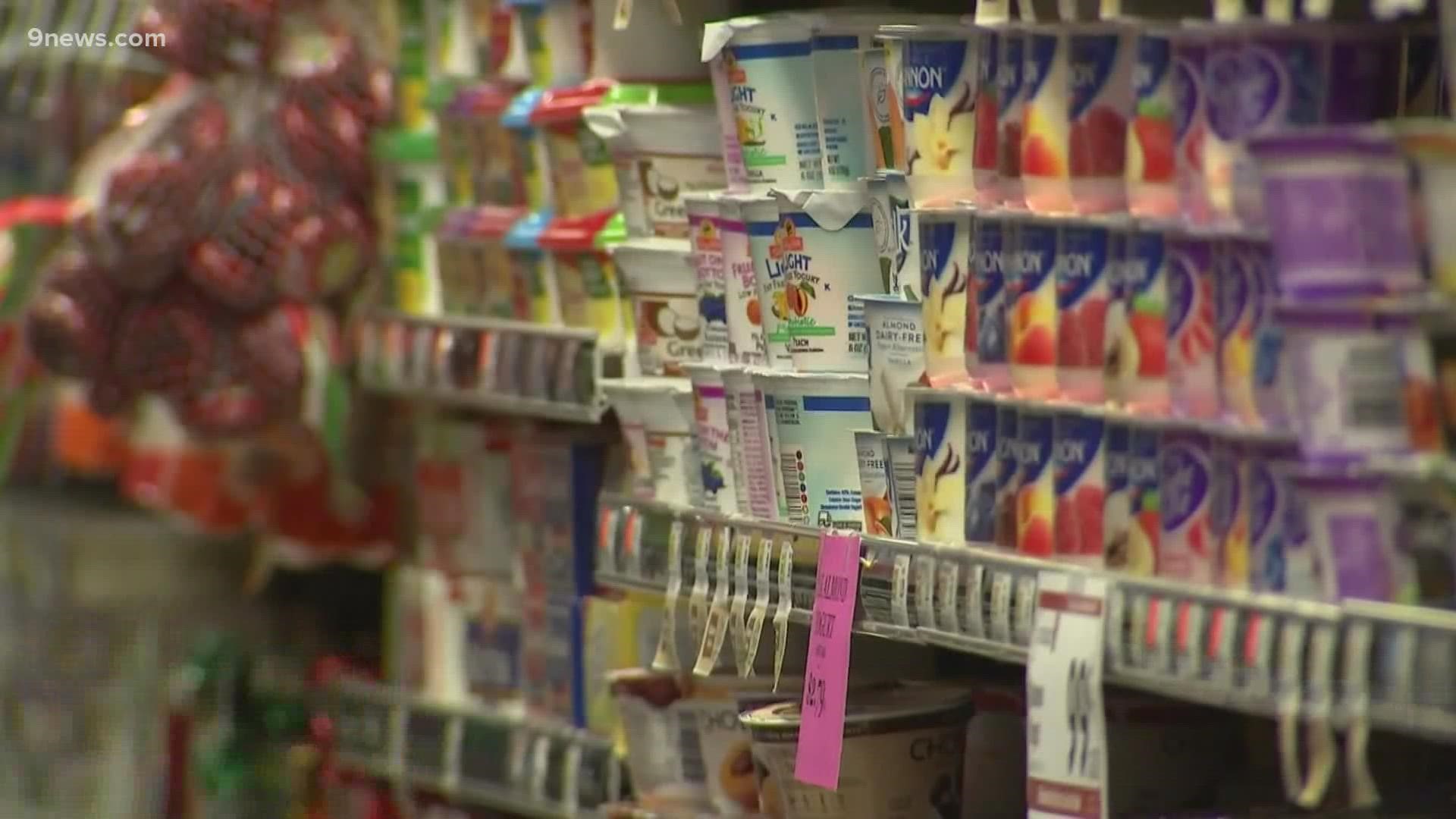DENVER — Lack of access to healthy foods can lead to bigger health disparities. That can then continue a cycle of inequities in our communities.
Food deserts are an issue Darrin Duber-Smith said people have known about for at least two decades. He's a senior lecturer of business at the Metropolitan State University of Denver who said food deserts all come down to money.
"The food deserts are sort of these areas where for-profit businesses don’t feel there’s enough economic opportunity to invest and that’s all it is," Duber-Smith said.
Denver's Human Services Index maps out food deserts across the city. The darker the color signifies a higher percentage of the population that do not live within a 10-minute walk to the grocery store.


According to the U.S. Department of Agriculture, an area is considered a food desert if at least 500 people or more than 33% of the population live more than a mile away from a supermarket or large grocery store. Without a vehicle to get there, that mile could translate into a 15-20 minute walk.
"It’s not that people don’t have access to groceries -- they don’t have access to affordable groceries with fresh, nutritious food," Duber-Smith said.
There are areas where a large grocery store may be more than a mile away, but smaller convenience stores offer more accessible food options.
Duber-Smith said a possible solution would be for federal and state governments to step in and subsidize grocery stores that would not otherwise open a location in an area they do not deem profitable.
"Government does tend to influence markets," Duber-Smith said. "In the same way that car companies get tax credits to produce green vehicles, King Soopers, Safeway and these businesses could be subsidized by the state and federal government to produce essentially money losing grocery stores in these food deserts."
Last month a publicly funded grocery store opened in Denver's Sun Valley neighborhood, which was once considered a food desert. It was a partnership between the Denver Housing Authority and the City of Denver.
While subsidizing grocery stores in food deserts could be a solution, it would ultimately fall into the hands of taxpayers.
In a statement to 9NEWS, the Denver Department of Public Health & Environment said they "partners with and provides funds to more than 80 community partners and schools to support community-driven projects that reduce food insecurity across the city."
SUGGESTED VIDEOS: Full Episodes of Next with Kyle Clark

